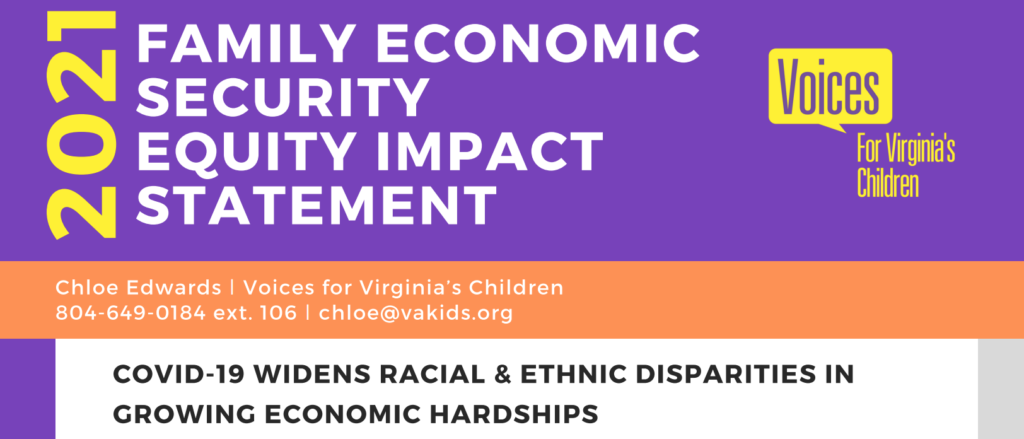

Food and nutrition must be available, adequate, and sustainable. Layers and layers of injustices contribute to inequitable access to food, including America’s legacy of redlining and housing discrimination, manifest destiny, disparities in access to wealth and opportunity derived from slavery, and more. Leah Penniman, Co-Director of Soul Fire Farm, an organization working to uproot racism in the food system, describes racism in the food access system in iterating, “The system where if you’re black or indigenous, you’re more likely to have diabetes, heart disease, and other diet-related illnesses, not ’cause you don’t know how to eat, but because there is a scarcity of affordable, culturally appropriate quality food that’s accessible.”
There are several factors that contribute to a lack of food and nutrition security, but for the purpose of this blog, a couple will be highlighted.
1.2M Virginians do not have access to paid time off, which accounts for 41 percent of the private sector. While paid time off may not appear to be a food justice issue in hindsight, note that when a worker takes 3.5 unpaid sick days, the average family loses a month’s work of groceries. In addition, the ALICE population are frontline workers, which include in-home healthcare workers, servers, and more. While they serve as a backbone for our economy, they make enough earnings above the federal poverty line but not enough to afford basic household necessities. As a result, one day’s loss of earnings makes a large impact on issues such as food security. According to the Adverse Childhood Experiences (ACEs) and Household Food Insecurity: Findings from the 2016 National Survey of Children’s Health, families that reported ACEs, such as domestic violence and family substance abuse, were much more likely to experience food insecurity. While 19 percent of children in Virginia experience two or more adverse childhood experiences, 37 percent of Black children experienced two or more ACEs, which is almost double that rate.
Food access impacts the overall quality of life and is influenced by several factors, such as racism as a public health crisis, childhood trauma and adversity, and family economic security. Thankfully, organizations and advocates are working hard to identify solutions.
View our full 2021 Family Economic Security Legislative Agenda.

This is the inaugural year of Voices equity impact statements. These briefs analyze disaggregated data to get at the heart of the true policy solution and the impact of that. Here you will find data and talking points to communicate the impact of the policy solution. View the full statement here.
ASK: $2M for a produce prescription pilot program to serve Medicaid and CHIP recipients by working with health professionals to increase fruit and vegetable consumption in order to treat chronic disease.
Update: A substitute passed the House Appropriations committee. The new version of the bill requires the Department of Social Services to convene a workgroup to develop the framework for the Produce Rx program and report to the Governor and Chairmen of the House Committee on Appropriations and Senate Committee on Finance and Appropriations by October 1st.
ASK: $4.75M to expand the number of retailers and entrepreneurs who will provide access to nutritious fruits and vegetables and SNAP incentives to bridge the gaps in our food supply system, especially in food deserts. Additional monies are critical to leveraging the remaining federally funded incentive dollars before they expire.
Join our email list. Keeping checking our blog for updates related to family economic security.
Read More Blog Posts